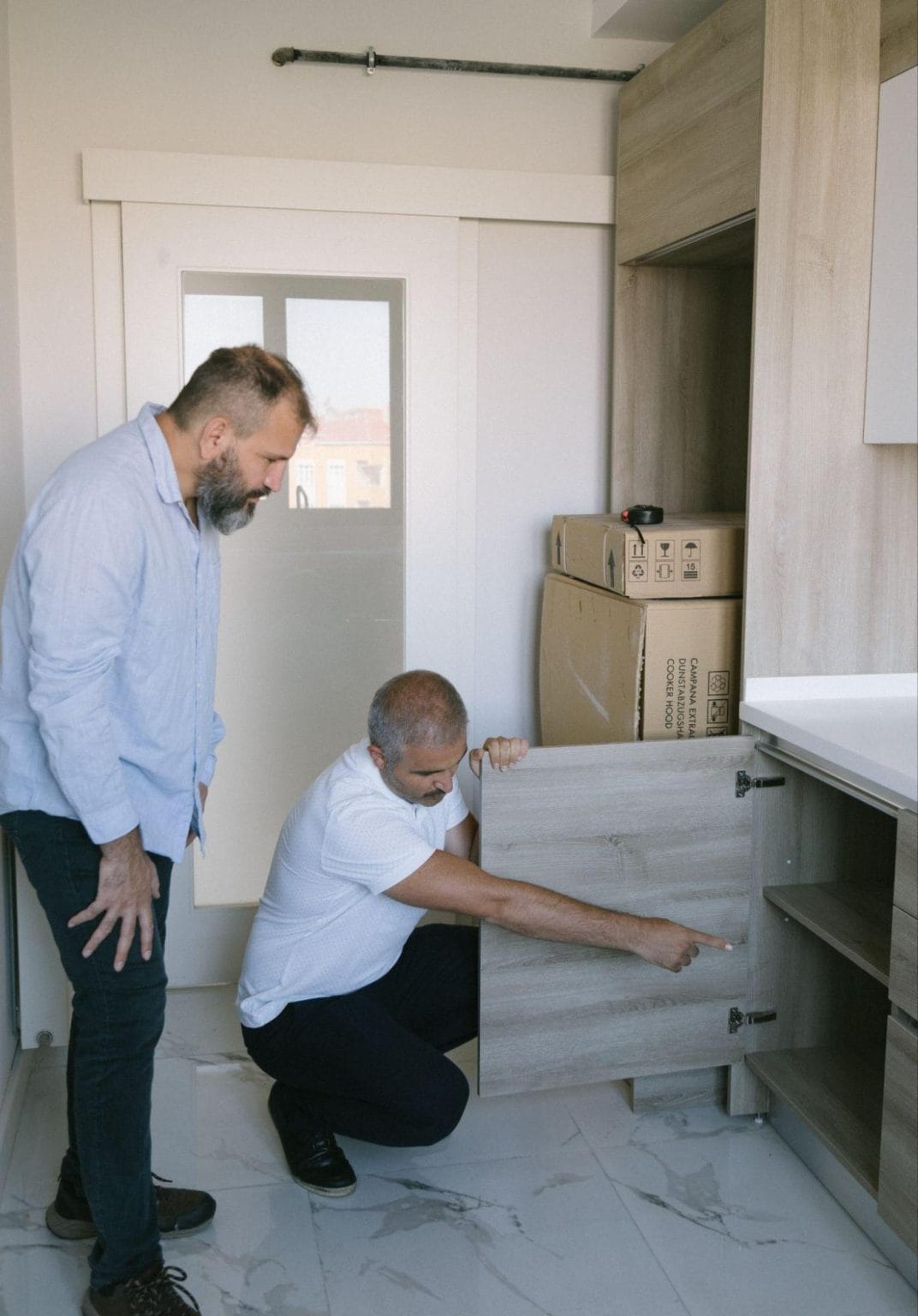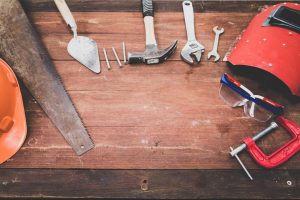Understanding who’s responsible for repairs in your Ontario rental property is crucial. It can prevent misunderstandings, legal disputes, and ensure a smooth tenancy for both landlords and tenants. In this article, we will answer common questions about who is responsible for specific tasks like clogged drains, as well as addressing how long landlords have to fix problems in Ontario.
General Responsibilities of Landlords and Tenants
Landlords are generally responsible for keeping the rental property safe and livable. They must handle repairs necessary to maintain the property in good condition, such as fixing broken appliances or addressing plumbing issues. They are also required to make all necessary repairs within a reasonable time, but exactly how long do landlords have to fix problems in Ontario depends on the severity of the issue..
Tenants, on the other hand, are typically responsible for minor repairs and maintenance, as well as keeping the property clean and tidy. Specific terms may be outlined in the lease agreement.
Maintenance and Upkeep
What are a Landlord’s Responsibilities for Repairs in Ontario?
Ontario landlords are legally obligated to maintain their rental properties in a habitable condition. But how long do landlords have to fix problems in Ontario? This depends on the nature of the issue, as urgent repairs require immediate attention. This includes:
- Structural Integrity: Addressing major repairs such as fixing leaks, foundation issues, and damaged roofs.
- Heating and Cooling: Ensuring adequate heating and cooling systems are functioning properly.
- Electrical Systems: Keeping electrical wiring and fixtures safe and up-to-code.
- Plumbing: Repairing plumbing systems, including leaks, faucets, and toilets.
- Locks and Security Features: Providing functioning locks and security features like deadbolts and security alarms.
How Long Do Landlords Have to Fix Problems in Ontario
In Ontario, the Residential Tenancies Act requires landlords to address and repair issues within a reasonable timeframe. The urgency depends on the severity of the problem. For example, critical repairs that affect health or safety, such as a broken furnace in winter or a significant water leak, must be addressed immediately. Delays in fixing urgent issues could result in legal consequences for the landlord or intervention by local authorities.
For non-urgent issues, such as cosmetic repairs or minor inconveniences, landlords are generally expected to address them within a few days to weeks. Clear communication between tenants and landlords is essential to determine an appropriate timeline for repairs. Documenting repair requests in writing can also help both parties track and resolve issues efficiently.
Does Landlord Have to Pay for Hotel During Repairs in Ontario?
In Ontario, landlords are generally not required to pay for a tenant’s hotel stay during repairs unless specific conditions are met. The Residential Tenancies Act (RTA) requires landlords to maintain rental units in a good state of repair, but if the property becomes uninhabitable due to unavoidable circumstances (like a flood or fire), the landlord isn’t automatically responsible for covering hotel costs. However, if the landlord’s negligence caused the issue, or if the lease agreement specifies compensation for temporary relocation, the landlord may be liable for these expenses.
Tenants who find themselves displaced due to repairs have several options. They can attempt to negotiate with the landlord for reimbursement, request a rent abatement through the Landlord and Tenant Board (LTB), or pursue legal action if the costs are significant. Maintaining clear communication, documenting repair issues, and understanding tenant rights under the RTA are essential for navigating these situations effectively.
Who is Responsible for Clogged Drains Tenant or Landlord Ontario
Clogged drains are a common issue in rental properties, and determining responsibility depends on the cause of the clog. Landlords are not responsible for clogs caused by tenant actions, such as improper disposal of grease, hair, or foreign objects into the plumbing. In these cases, tenants are typically liable for the repair costs.
However, if the clog is due to normal wear and tear or issues within the plumbing system, such as tree root intrusion or outdated pipes, it is the landlord’s responsibility to address and repair the issue. Landlords must ensure that the property’s plumbing remains functional and safe for tenants. Clear guidelines in the lease agreement can help define these responsibilities.
Who is Responsible for Cosmetic Repairs and Upkeep?
Cosmetic repairs typically fall under the tenant’s responsibility, including any changes they wish to make to the property. However, tenants must obtain the landlord’s approval before making alterations that could alter the appearance of the rented area or the property as a whole.
Are Landlords Responsible for Light Bulbs?
There is no specific law in Ontario that dictates who must replace light bulbs in a rental unit. Responsibilities landlords are not responsible for include replacing light bulbs that are easily accessible within the tenant’s unit. This is generally considered a minor maintenance task that tenants should handle.
However, landlords may be responsible for replacing light bulbs in shared or inaccessible areas, such as hallways, stairwells, or outdoor lighting, especially in multi-unit properties. It’s important for the lease agreement to outline these responsibilities to avoid confusion.
Who’s Responsible for Appliances in a Rental Property in Ontario?
Landlords are generally responsible for repairing or replacing major appliances such as stoves, refrigerators, and dishwashers. These appliances are considered essential to the functionality and habitability of a rental property, and ensuring they are in working order is typically part of a landlord’s obligations. Many lease agreements explicitly state that landlords will handle repairs or replacements for these appliances as needed.
However, if damage to an appliance is caused by a tenant’s negligence or improper use, the tenant may be held financially responsible for the repair or replacement costs. Examples of such negligence could include overloading a washing machine or failing to follow manufacturer’s instructions for operation. It’s crucial for both landlords and tenants to clearly outline these responsibilities in the lease agreement to avoid disputes.
How Often Does a Landlord Have to Paint?
In Ontario, there is no specific legal requirement for how often a landlord must repaint a rental property. However, landlord painting responsibilities in Ontario generally involve maintaining the property’s appearance and habitability. A fresh coat of paint can help ensure the property remains appealing and livable.
Many landlords choose to repaint every 3-5 years as a reasonable guideline. This time frame balances the need for upkeep with practicality, ensuring that the rental remains in good condition without incurring unnecessary expenses. Landlord painting responsibilities in Ontario also extend to repainting when significant wear and tear or damage has occurred that affects the property’s habitability.
Cleaning Responsibilities
Who is Responsible for Cleaning
Landlords are responsible for maintaining shared areas such as hallways and entryways in multi-unit properties. They also have a legal obligation to clean the rental unit between tenants, ensuring it is in a “good state of repair and fit for habitation” before the new tenant moves in. This includes removing all belongings from the previous tenant and providing a reasonably clean and sanitary living space.
Tenants are responsible for keeping their rental unit clean during their tenancy, which includes:
- Taking out the trash regularly
- Keeping the unit free of clutter
- Cleaning spills and messes promptly
- Vacuuming carpets and rugs
- Dusting surfaces
- Mopping floors
Pest Control Responsibilities
Are Landlords Responsible for Pest Control?
While tenants must prevent pest infestations through cleanliness, landlords are responsible for addressing significant pest problems. If a serious infestation occurs, such as a rodent or bed bug outbreak, the landlord must take immediate steps to eradicate it. This may involve hiring professional pest control services and ensuring that the issue is thoroughly resolved to maintain the property’s habitability.
Landlords should also conduct regular inspections to identify potential pest issues early. Proactive maintenance, such as sealing entry points and addressing moisture problems, can prevent infestations from occurring. Clear communication between landlords and tenants about preventive measures and expectations can further reduce the likelihood of pest problems.
What Are Tenants’ Responsibilities for Pest Control?
Tenants play a key role in preventing pest infestations by maintaining cleanliness in their rental units. Responsibilities landlords are not responsible for include ensuring proper food storage, taking out garbage regularly, and avoiding conditions that attract pests, such as clutter or standing water.
If a tenant’s actions or negligence cause a pest infestation, they may be required to cover the costs of pest control services. Lease agreements should clearly outline these responsibilities to avoid misunderstandings. By working together, landlords and tenants can create a pest-free living environment.
Grounds keeping
Who is Responsible for Outside Upkeep?
If the outside area is exclusive to the tenant, such as in the rental of a house, the tenant is likely responsible for tasks like mowing the lawn, watering plants, and emptying trash cans. Responsibilities landlords are not responsible for in such cases include routine grounds keeping and minor maintenance of the outdoor space.
However, if the landlord provides a gardening service or if the lease agreement specifies that the landlord will handle outdoor upkeep, these tasks become the landlord’s responsibility. It is important for both parties to review and agree upon these terms to avoid disputes.
Who is Responsible for Outside Repairs?
Landlords are generally responsible for major repairs, such as fixing broken windows or addressing damage that affects the property’s structural integrity or habitability. If in doubt, check your rental agreement or consult your landlord.
Clear Communication is Key
Effective communication between landlords and tenants is essential for resolving repair issues promptly. A clear written lease agreement outlining specific responsibilities and expectations is highly advisable.
By understanding these responsibilities and maintaining open communication, both landlords and tenants can ensure a positive rental experience.
Conclusion
Understanding the specific responsibilities of landlords and tenants in Ontario is key to maintaining a harmonious rental relationship. While landlords are responsible for ensuring the property’s habitability and major repairs, tenants have obligations related to minor maintenance and cleanliness. By clarifying these roles and fostering open communication, both parties can contribute to a positive and stress-free rental experience.
Sources
- Landlord and Tenant Board: Maintenance and Repairs Brochure
- Landlord and Tenant Board: A Guide to the Residential Tenancies Act






